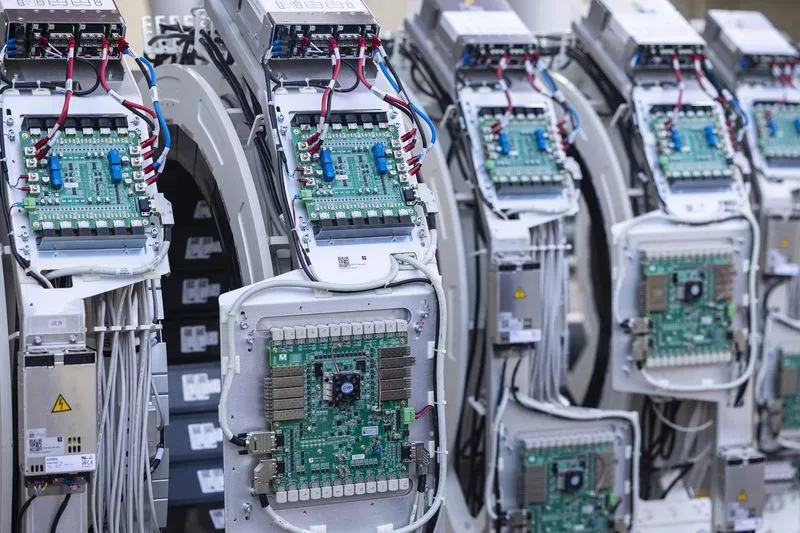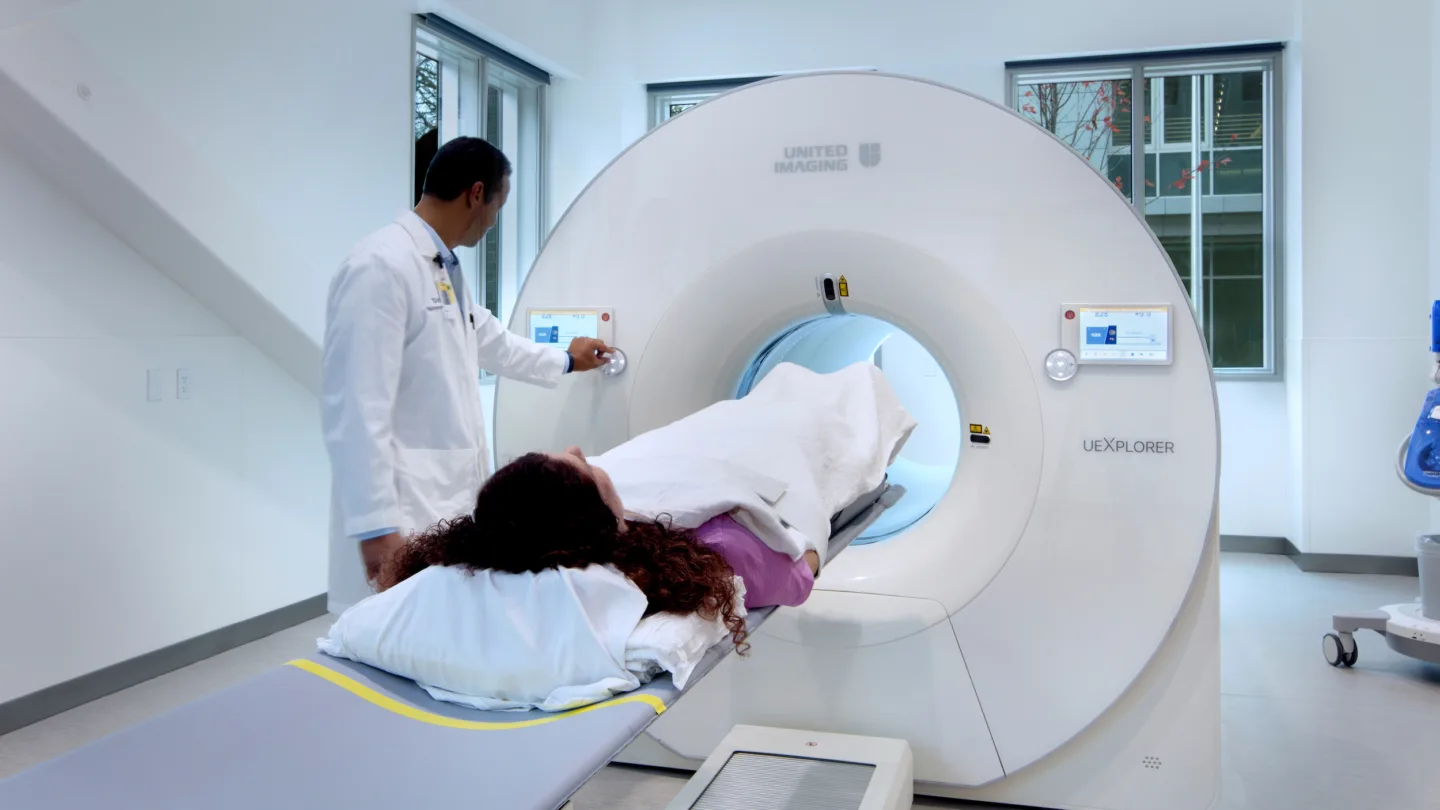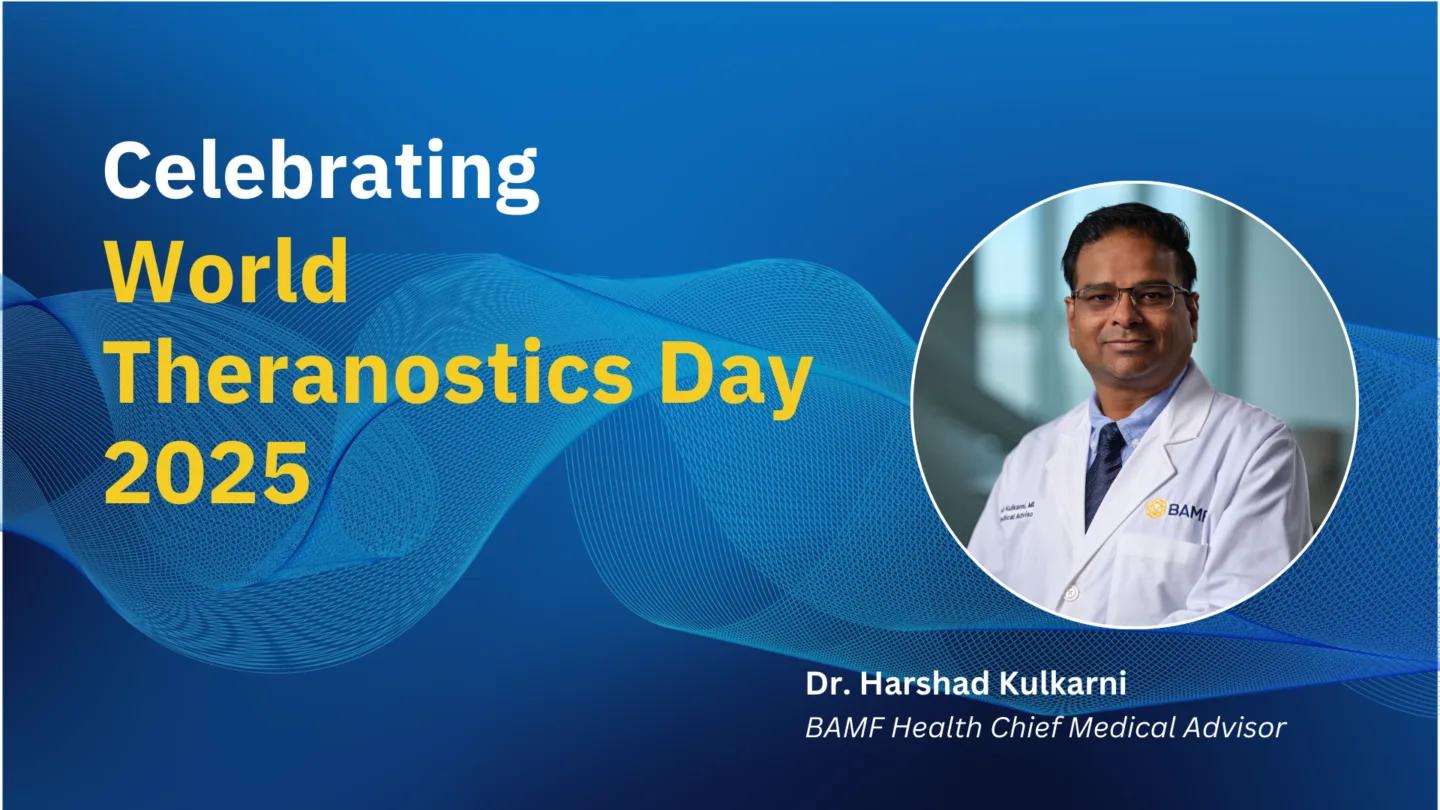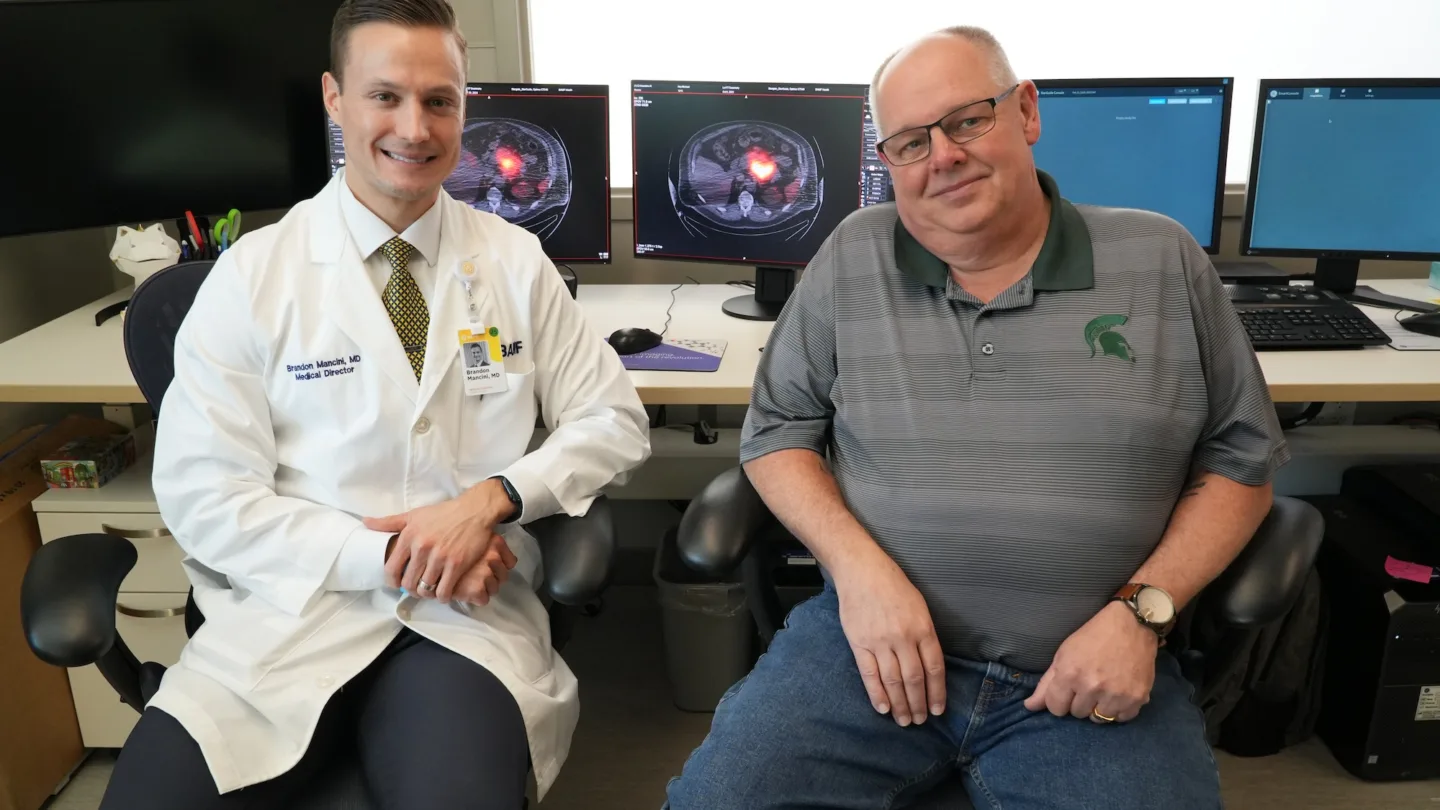
Originally posted on MLive by Brian McVicar
GRAND RAPIDS, MI — Standing beside a new, multi-million-dollar medical scanning device, Dr. Anthony Chang on Monday said his company, Grand Rapids-based BAMF Health, now has the tools to more quickly identify cancer and begin treatment.
He likened the technology, Michigan’s first full-body PET-CT scanner and one of a handful nationwide, to the “most advanced fighter jet” available.
“We can shorten a 40-minute scan to one minute,” Chang said, speaking outside BAMF Health’s office at Michigan State University’s Doug Meijer Medical Innovation Building in Grand Rapids. “This is a powerful, powerful diagnostic tool.”
BAMF Health, founded in 2018, is expected to begin treating patients for prostate cancer and neuroendocrine tumors in June or July. Using molecular imaging and molecular targeted radiation therapy, the company provides patients with what it calls intelligence-based precision medicine.
The scanner, which cost between $15-$20 million and was manufactured by Houston-based United Imaging, is one of the final pieces of equipment BAMF Health needed before it can open its doors this summer. Patients from throughout the country are expected to seek treatment there, officials say.
One reason: shorter, more precise cancer scans.
Chang said the machine can detect signs of cancer less than two millimeters in size. Conventional scanners, by comparison, have a resolution of about one centimeter. There are 10 millimeters in one centimeter.
“That means extremely early phase detection,” he said. “That’s going to be critical to a lot of cancer patients. Because staging of cancer, knowing if there’s any spread-out cancer, is critical.”
He added, “Because of the limitation of conventional scanner, we think we kill all the cancer, but actually we are not. There’s a lot of tiny things around the body we cannot see. This machine is going to solve that problem.”
As of now, BAMF Health is only focused on prostate cancer and neuroendocrine tumors. But Chang said he “soon” expects to expand its focus to include other cancers as well as heart-related diseases and neurological disorders such as Alzheimer’s disease and Parkinson’s disease.
“That’s the future, and it’s in the near future,” he said.
The scanner, not yet fully assembled, was unveiled during a media event Monday at Michigan State University’s Doug Meijer Medical Innovation Building. State Rep. Luke Meerman, officials from Michigan State University’s College of Human Medicine, Doug Meijer and others were in attendance.
Meijer, whose family founded the Meijer grocery store chain, is a prostate cancer survivor, and a supporter of Chang and BAMF Health. He and the Meijer Foundation donated $19.5 million to MSU to help open the Doug Meijer Medical Innovation Building and purchase equipment for BAMF Health.
His interest in the project stemmed from his own battle with prostate cancer. About five years ago, he traveled to Germany with Chang to be treated for prostate cancer. His treatment involved technology similar to what BAMF Health and MSU are pursuing in Grand Rapids.
“It just didn’t seem right that it’s so limited to so few people over there,” Meijer said, describing his reason for investing in BAMF Health and making the cancer fighting technology available in Michigan.
He expressed hope that BAMF’s technology, because it can provide scans for more people in a shorter amount of time, will lower treatment costs.
BAMF Health is one of several tenants that will eventually occupy the Doug Meijer Medical Innovation Building, which was created with the goal of bringing to market discoveries in the fields of cancer research, Alzheimer’s and Parkinson’s diseases, artificial intelligence and medical device development.
The building’s exterior is complete, but interior construction to prepare the space for tenants is ongoing, said Jerry Kooiman, assistant dean for external relations at MSU’s College of Human Medicine.
Other tenants at the building include Spectrum Health, MSU researchers focused on big data and artificial intelligence, Trinity Health, venture capital firms, and more. Some tenants, such as Spectrum, are expected to move in by fall.
“I think we’re making incredible progress, especially considering this whole building went up during COVID,” Kooiman said.
There have been challenges, he said.
Some tenants, because of the pandemic, are reevaluating how much space they will need and how many employees will be working in person versus remotely. However, Kooiman said the building is attracting startups that value the idea of working in close proximity to other biotechnology companies.
“It’s coming together,” he said. “You always want it to come together faster, but we’re really excited about where we’re at.”
Officials who work in the bio-sciences sector say the arrival of BAMF Health is big deal for Grand Rapids.
“The world is going to change here in Grand Rapids, and Anthony is going to help lead the charge,” Eric Icard, senior director of business development at The Right Place, a Grand Rapids-based economic development group.
Chang, speaking at the media event Monday, said he’s eager to begin treating patients with what he described as the “world’s most advanced” medical imaging technology.
“The new world is coming, the new medicines coming, and everything is starting from here in Grand Rapids, Michigan,” he said.


